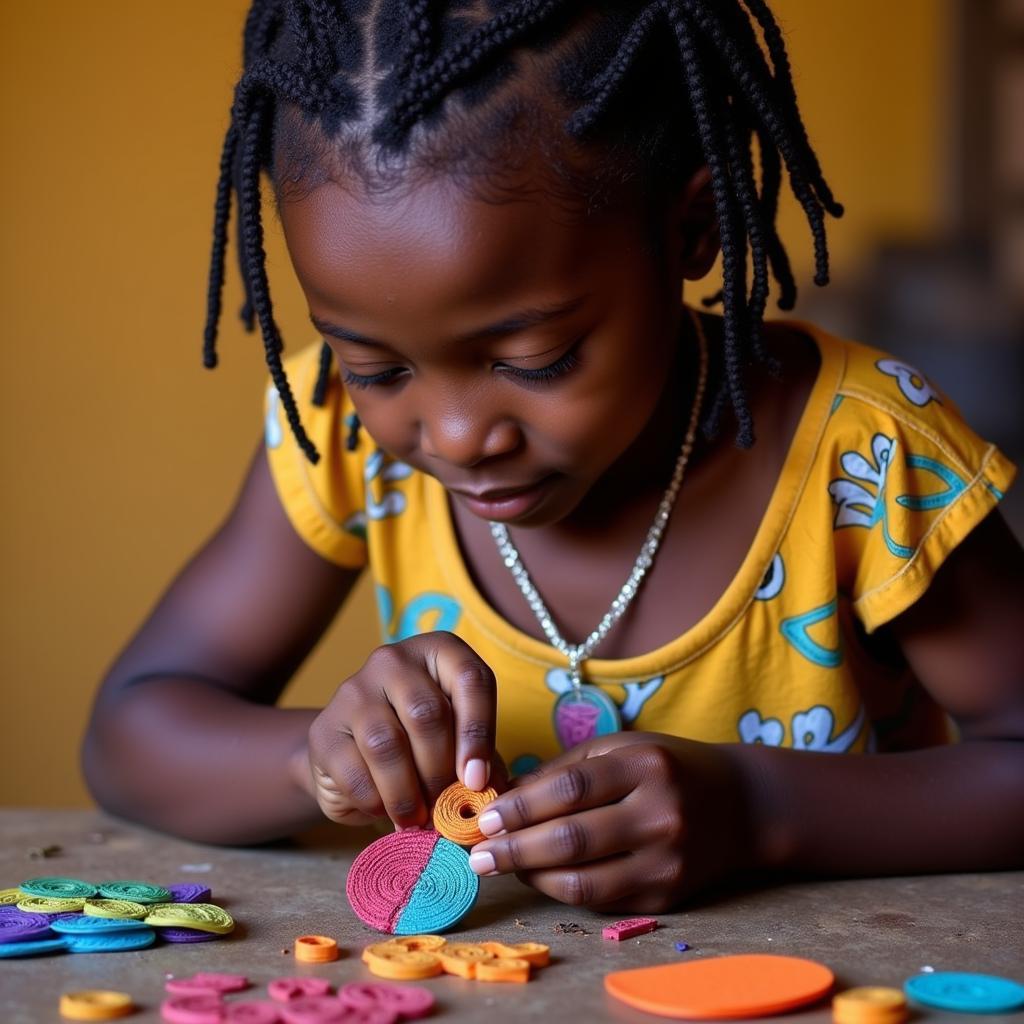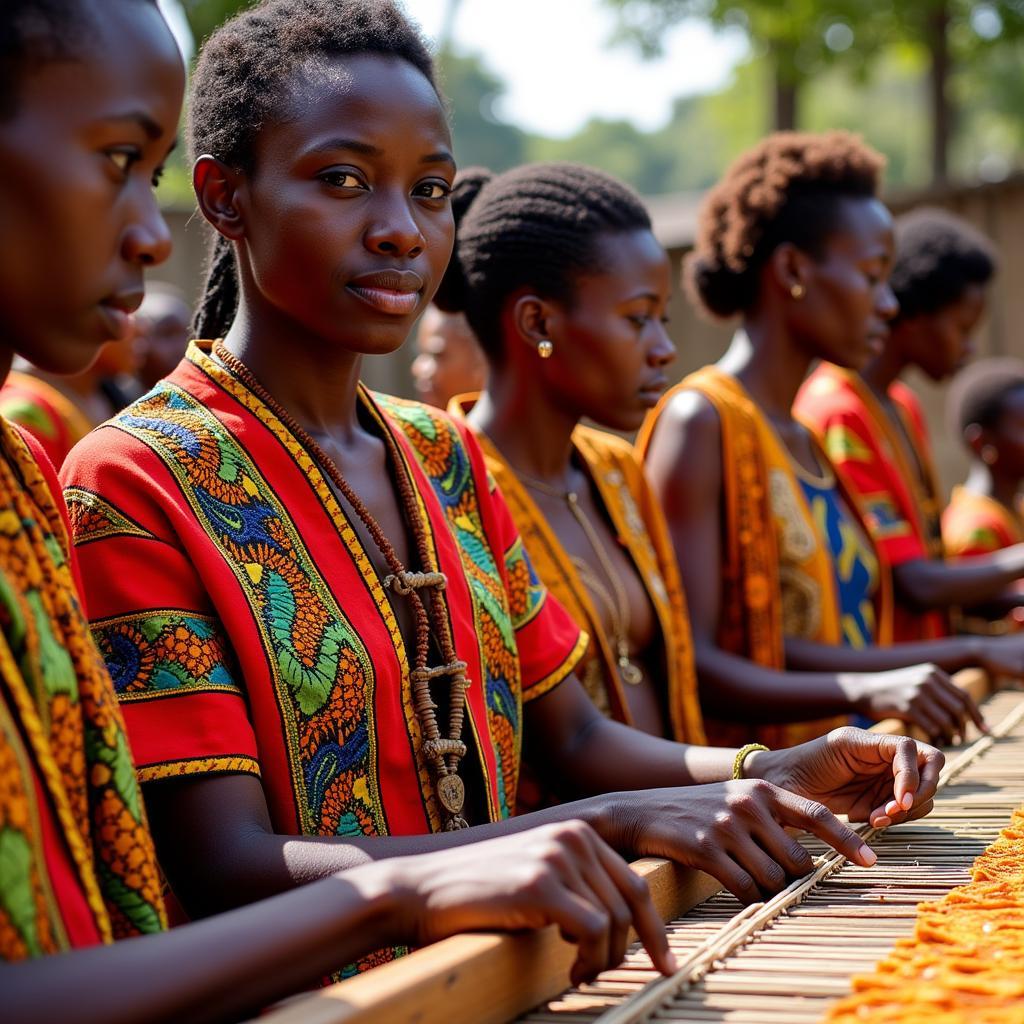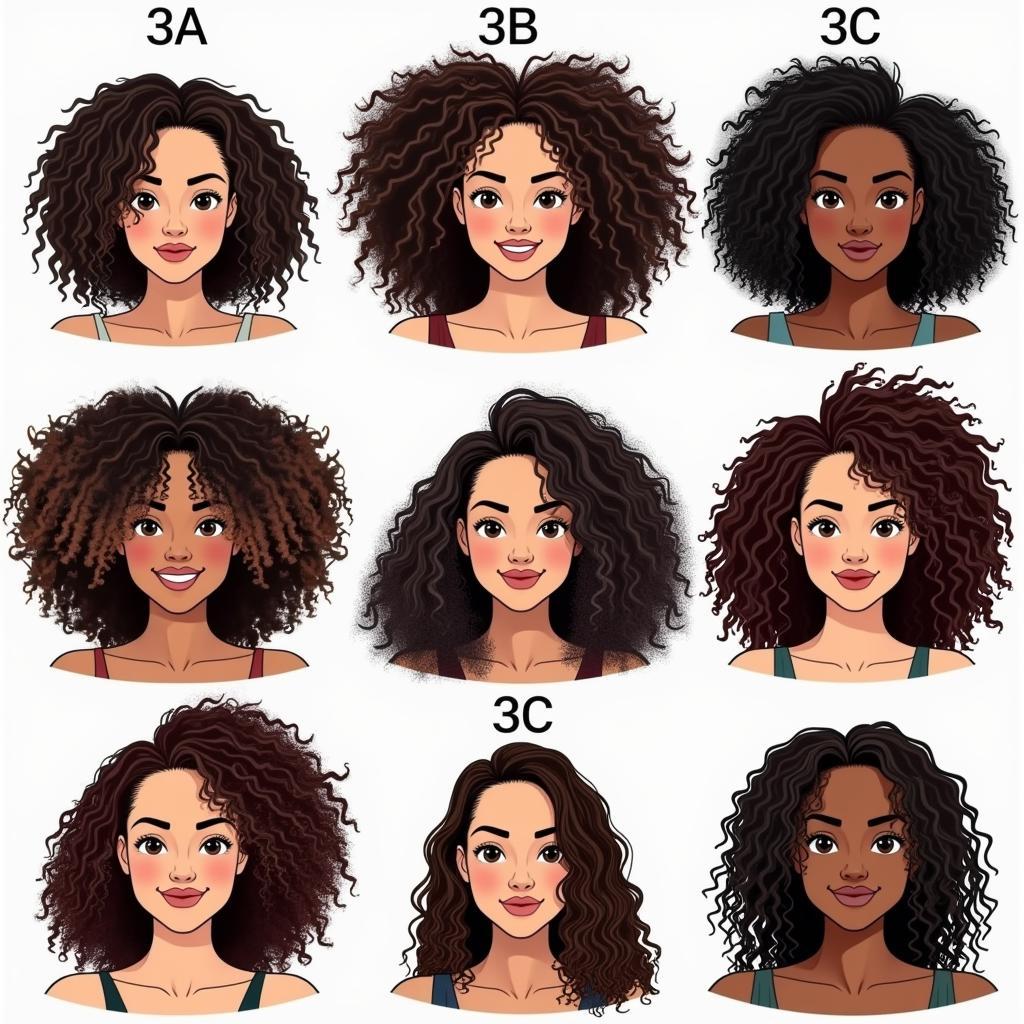The African Diaspora in Brazil: A Legacy of Culture and Resilience
The African Diaspora In Brazil represents a rich tapestry of history, culture, and resilience. It is a testament to the enduring impact of the transatlantic slave trade and the enduring contributions of Africans and their descendants to Brazilian society. This article delves into the complex and fascinating story of the African diaspora in Brazil, exploring its origins, cultural impact, and ongoing legacy.
The Arrival of Africans in Brazil
The arrival of Africans in Brazil began in the 16th century, driven by the insatiable demand for labor on sugar plantations. Brazil quickly became the center of the transatlantic slave trade, importing millions of Africans over the next three centuries. These forced migrations brought diverse African populations to Brazil, from various regions and ethnic groups, including Yoruba, Kongo, Angola, and Benin.
The Cultural Impact of the African Diaspora
The arrival of Africans had a profound impact on Brazilian culture, shaping its music, dance, religion, language, and cuisine. African traditions, beliefs, and practices were interwoven with indigenous and European influences, creating a unique cultural blend.
Music and Dance
African rhythms and musical instruments played a pivotal role in the development of Brazilian music. Samba, a vibrant and energetic dance form, originated from African drumming and dance traditions. Other popular Brazilian genres, such as capoeira, bossa nova, and choro, also bear the imprint of African influence.
Religion
African religious practices, such as Candomblé and Umbanda, were syncretized with Catholic beliefs, giving rise to vibrant syncretic religions that incorporated elements of both African and Christian traditions. These Afro-Brazilian religions continue to thrive today, playing a vital role in the lives of many Brazilians.
Language
African languages and expressions left their mark on the Portuguese spoken in Brazil. Words and phrases of African origin have become an integral part of Brazilian vernacular, reflecting the influence of the African diaspora.
Cuisine
Brazilian cuisine is a testament to the rich cultural exchange between Africa, Europe, and indigenous populations. Dishes such as feijoada, a hearty stew of beans, pork, and other ingredients, have African roots. Other culinary traditions, such as acarajé and vatapá, are direct descendants of West African cooking.
The Struggle for Recognition and Empowerment
The African diaspora in Brazil has faced centuries of oppression and marginalization. Despite their significant contributions to Brazilian society, Africans and their descendants have often been denied their rightful place and recognition.
The Fight for Freedom and Equality
The struggle for abolition in Brazil was long and arduous. The abolition of slavery in 1888 was a major victory, but it did not immediately lead to equality or social justice. Racism and discrimination continued to plague the African diaspora in Brazil, hindering their access to opportunities and resources.
The Rise of Afro-Brazilian Movements
In recent decades, there has been a growing movement for Afro-Brazilian empowerment and recognition. Organizations and activists are working to raise awareness about the history and culture of the African diaspora, challenging racist stereotypes and promoting social justice.
The Ongoing Legacy of the African Diaspora
The African diaspora in Brazil continues to shape the country’s cultural landscape and influence its social and political discourse. The vibrant and resilient spirit of the African diaspora remains a source of pride and inspiration for Brazilians of African descent.
Cultural Pride and Identity
Afro-Brazilian culture is a testament to the resilience and creativity of the African diaspora. It is a powerful force for social change and cultural enrichment, promoting pride and identity among Brazilians of African descent.
Economic and Social Advancement
The African diaspora in Brazil is actively contributing to the country’s economic and social progress. Afro-Brazilian entrepreneurs, artists, scholars, and professionals are making their mark in various fields, breaking down barriers and paving the way for future generations.
The Future of the African Diaspora in Brazil
The future of the African diaspora in Brazil is bright, marked by a growing sense of empowerment and a commitment to social justice. As the country continues to grapple with its history of slavery and racism, the African diaspora is poised to play a vital role in shaping a more equitable and inclusive society.
FAQ
1. What is the significance of the African diaspora in Brazil?
The African diaspora in Brazil is significant because it represents a crucial element of the country’s cultural identity, shaping its music, dance, religion, language, and cuisine. It also embodies the resilience and contributions of Africans and their descendants in overcoming centuries of oppression.
2. What are some examples of Afro-Brazilian cultural expressions?
Afro-Brazilian cultural expressions include music genres like samba, capoeira, and bossa nova, religious traditions such as Candomblé and Umbanda, and culinary specialties like feijoada, acarajé, and vatapá.
3. How does the African diaspora continue to influence Brazil today?
The African diaspora continues to influence Brazil today through its ongoing cultural contributions, its active role in promoting social justice, and its growing economic and social influence.
4. What are some of the challenges faced by the African diaspora in Brazil?
The African diaspora in Brazil continues to face challenges related to racism, discrimination, and lack of access to opportunities and resources.
5. What is the future outlook for the African diaspora in Brazil?
The future outlook for the African diaspora in Brazil is optimistic, marked by growing empowerment, a commitment to social justice, and a growing awareness of its significant contributions to Brazilian society.
6. What are some resources for learning more about the African diaspora in Brazil?
You can learn more about the African diaspora in Brazil through books, documentaries, museums, and websites dedicated to Afro-Brazilian history and culture. There are also numerous organizations and activists working to raise awareness and promote understanding of the African diaspora in Brazil.
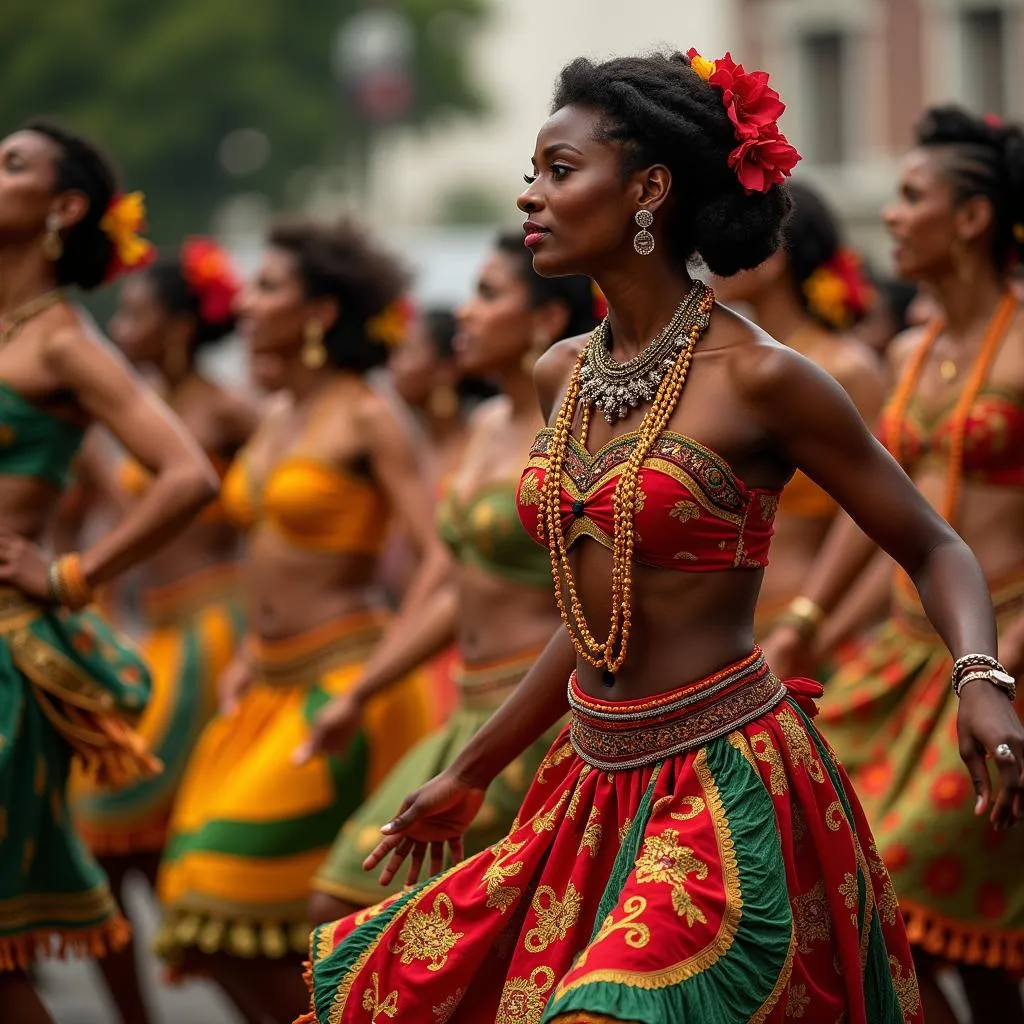 A group of Brazilian dancers performing samba
A group of Brazilian dancers performing samba
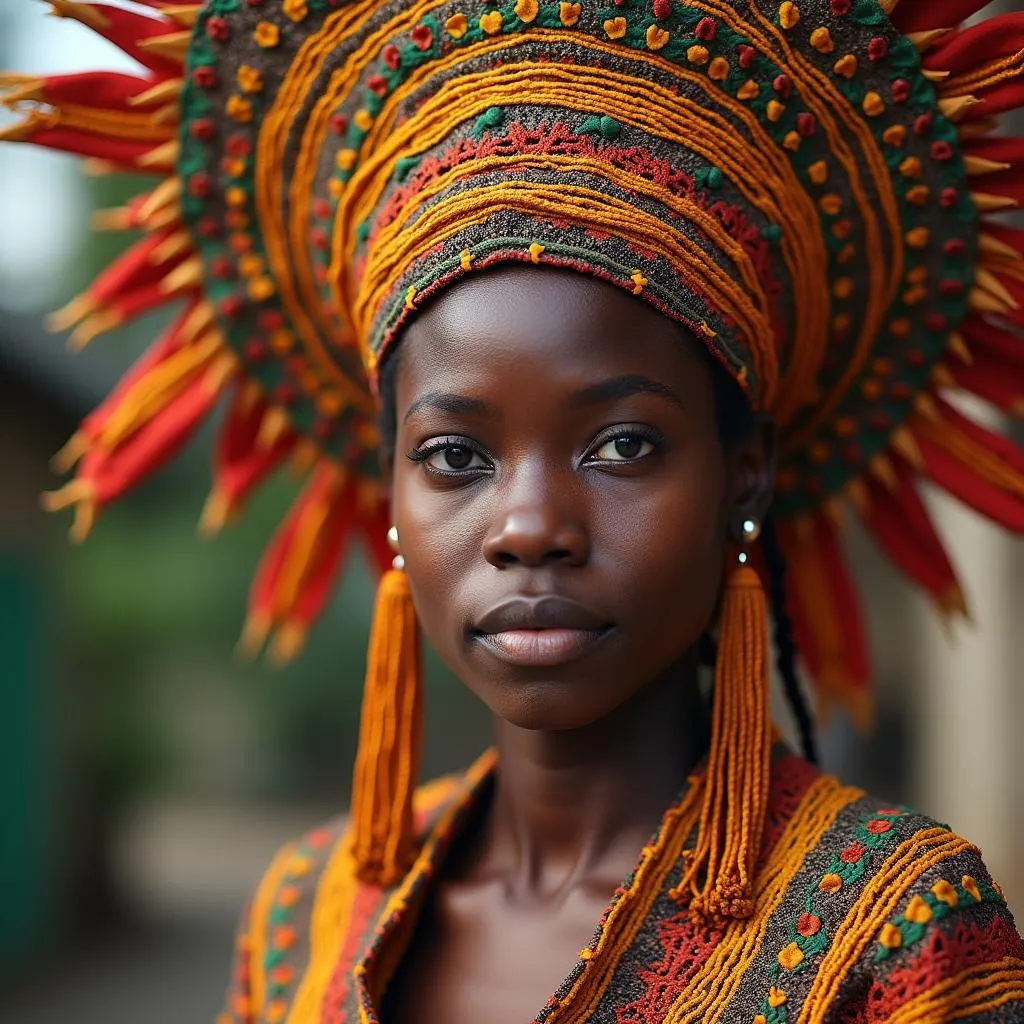 A woman dressed in traditional Candomblé attire
A woman dressed in traditional Candomblé attire
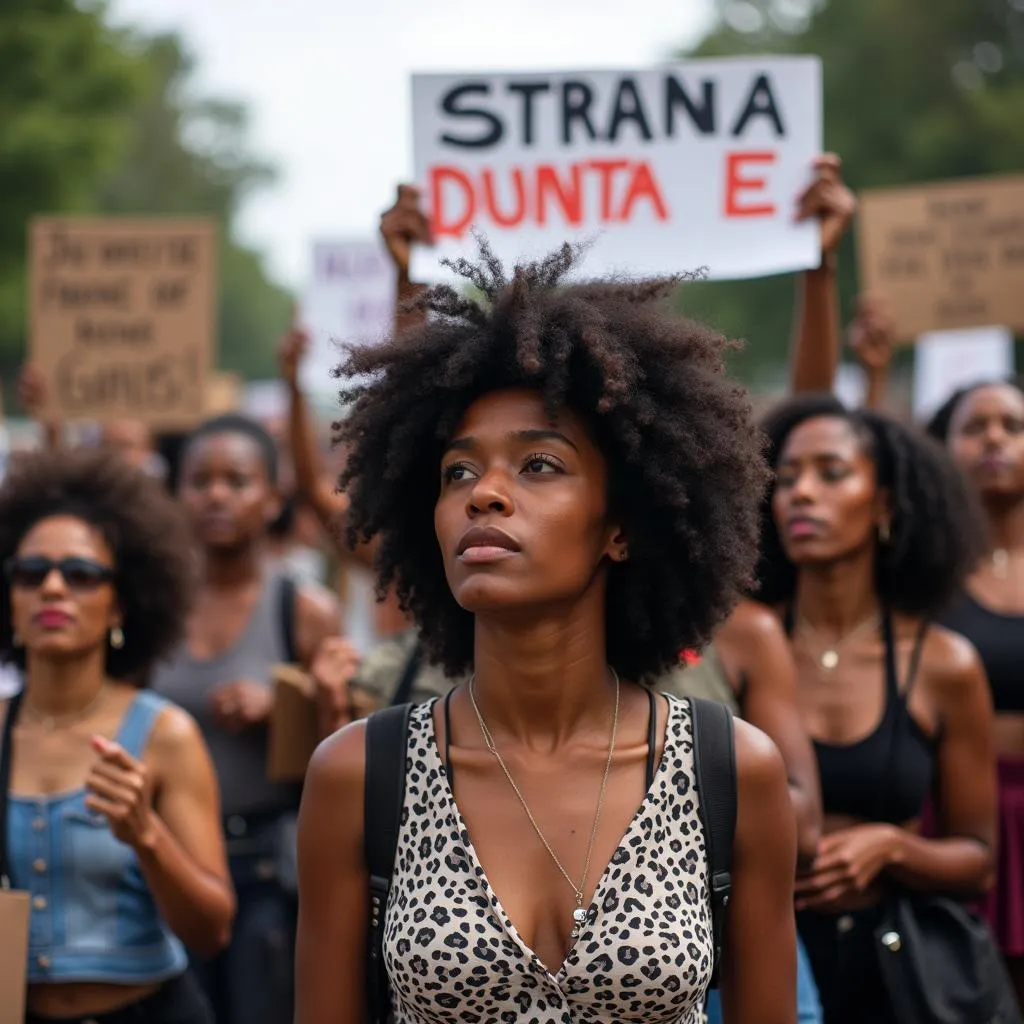 A group of Afro-Brazilian activists protesting for social justice
A group of Afro-Brazilian activists protesting for social justice
The story of the African diaspora in Brazil is one of resilience, cultural richness, and ongoing struggle for recognition and empowerment. It is a testament to the enduring legacy of Africa in the Americas and a powerful reminder of the importance of honoring and celebrating diversity.
